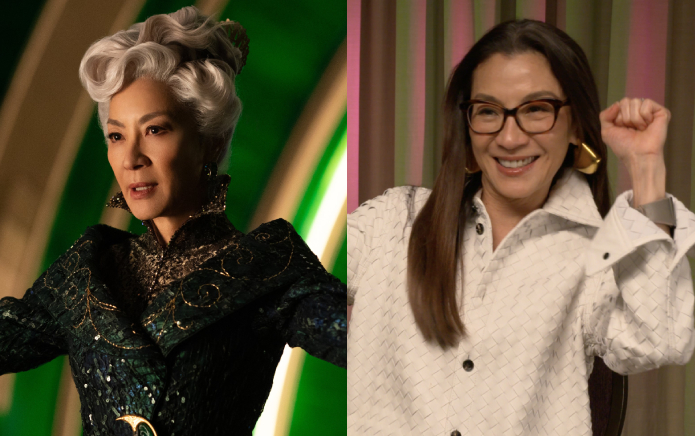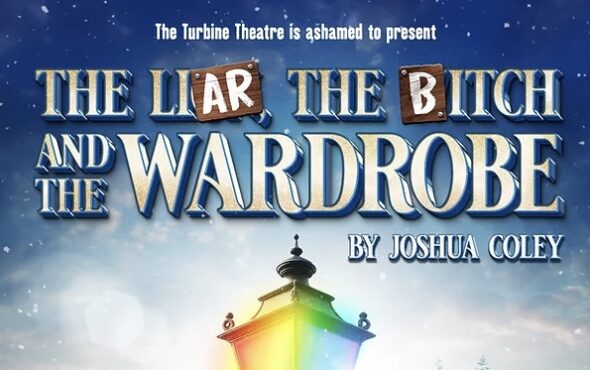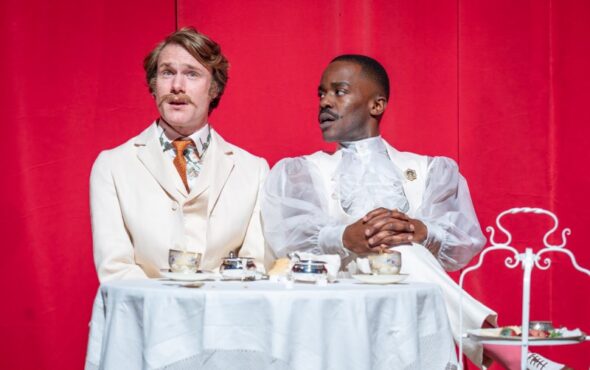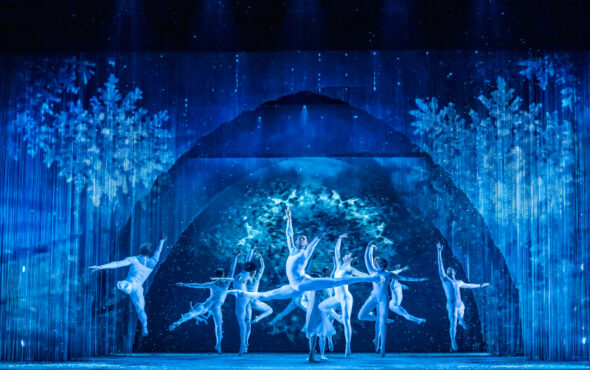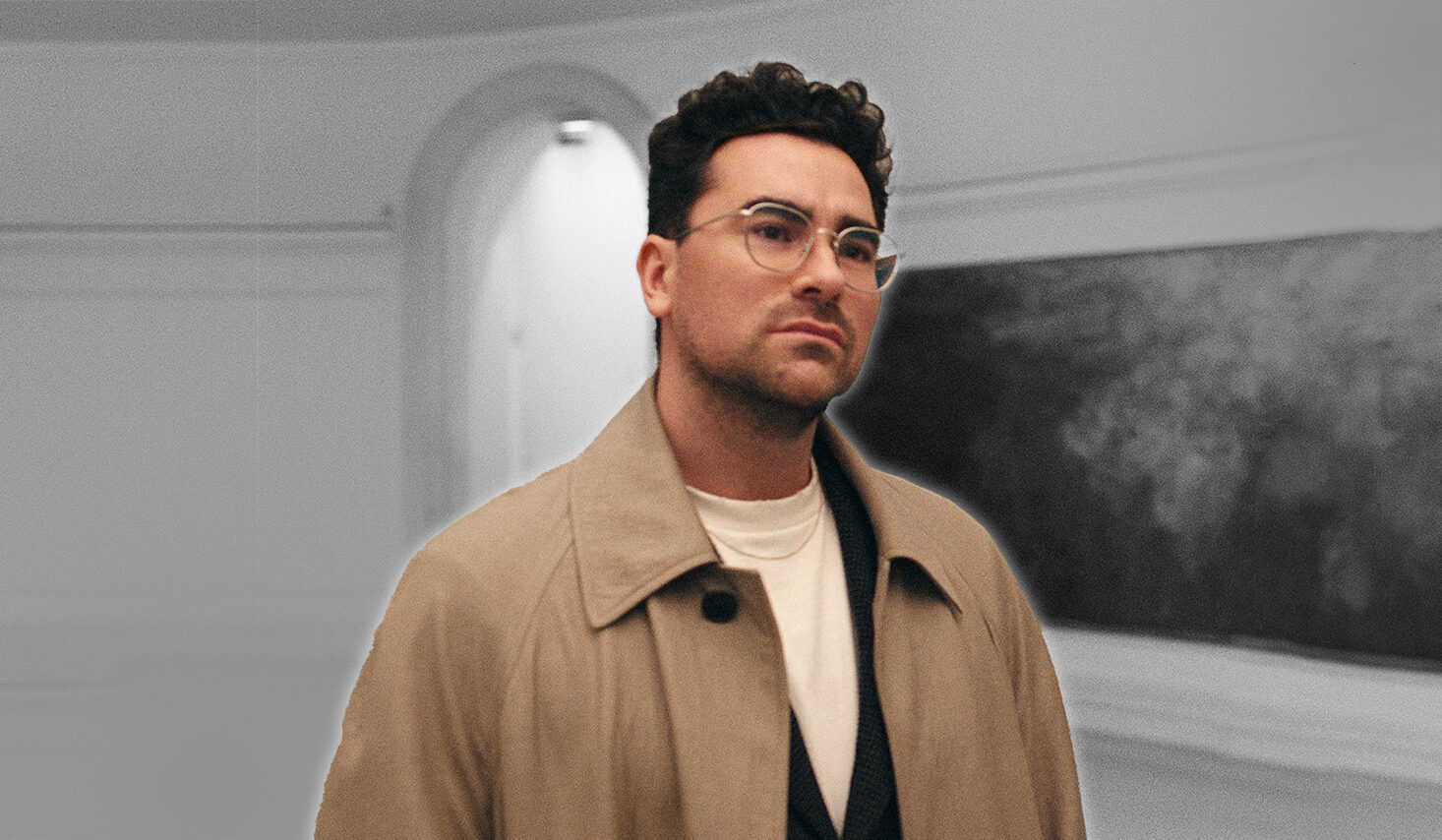
With Dan Levy’s lauded new Netflix dramedy Good Grief, viewers are guaranteed to weep, cackle and – in my case – seethe (watch it immediately, and ye shall understand). “People have been saying they were emotionally affected by it and I’m like, ‘Thank you.’ There’s no word to describe that,” he tells GAY TIMES. “I don’t wish that on someone, but I am glad that the desired effect took effect.”
Co-starring Ruth Negga, Himesh Patel and Luke Evans, the emotionally-charged film stars Levy as Mark, a man who embarks on a weekend getaway to Paris with his two best friends after the sudden death of his husband (Evans). As well as starring in the lead role, Levy wrote, directed and produced Good Grief – marking the first time he’s utilised all of these skills for one project since his seminal comedy series Schitt’s Creek, which memorably saw him make Emmy history as the first person to win in all four major categories in a single year.
“By the end of the night, I believe I said on camera that people are going to hate me for this. And I hate that I said that,” Levy reminisces, admitting that he was unable to absorb his record-breaking victory at the time as a result of our “critical and cruel culture” that has a tendency to “turn” on people after a bout of success. “I should’ve been more proud in that moment,” he says, “yet I was so aware of what people were thinking.”
However, Levy hasn’t felt the inevitable pressure to replicate this success with his post-Schitt’s career: “It’s a point of pride in knowing that I made something that changed people’s lives.” In the three years since the series finale, Levy spread festive queer in Happiest Season, guest-starred in HBO’s controversial musical drama The Idol and played a prickly – in the words of one fan – “asshole” in Sex Education as Mr. Malloy. “The fact that I’ve continued to be given opportunities is essentially icing at this point,” says Levy. “I take the opportunities I get very seriously because I know how rarely they’re afforded to members of our community.”
Here, Levy discusses the “desire to do something different” with Good Grief, his mission to platform ‘queer and underrepresented writers’ and where he currently stands on a follow-up to Schitt’s Creek. More importantly – this is breaking news, actually – he finally reveals why Annie Murphy’s trailblazing dance-pop anthem ‘A Little Bit Alexis’ never received the music video treatment.
Dan, this film… A lot of emotions. Did you intend to take viewers on a rollercoaster with Good Grief?
A wild ride? Yeah. I did. I mean, yeah. There were some ups and downs. You wanted to add some intrigue, certainly. It’s a strange thing because people have been saying they were emotionally affected by it and I’m like, ‘Thank you.’ There’s no word to describe that. I don’t wish that on someone, but I am glad that the desired effect took effect.
You wrote, directed, produced, starred and – insert all the jobs here – you did all of it. Where did the idea for this story originate from?
I have experienced some loss in my life. At the time, I was wanting to make something about friendship, having that be the central focus of the story. I started playing around with the idea that loss could be a catalyst for telling the story of this group of friends, what their lives would be like in the wake of a loss. So, the script slowly started to form based on that combination. It worked quite nicely in terms of forcing a confrontation, eventually, between these people that I think will make their friendship stronger in the end. But, I think a lot changes in the wake of a loss. As people grapple with grief, it illuminates parts of yourself that you may not have wanted to see. It forces a confrontation of self and recontextualizes the joy of being alive, ultimately, and who we choose to spend our time with. That was the beginning of it all, and once I pieced the script together, it came quite naturally.
This is your first project since Schitt’s Creek where you’ve utilised all of those creative hats…
You need some time in-between. It’s a really intense process to do all those jobs. But, it ultimately comes from an enthusiasm to tell the story. Schitt’s was some of the hardest work I’ve ever done and yet there wasn’t a day where I wasn’t absolutely thrilled to be doing it. So, you’re willing to invest the time and sacrifice a lot of your life in exchange for the creative fulfilment of making something special. But, you need some downtime in-between before you recommit to that level of all-in work.
I’m massively veering off topic but I interviewed Emily Hampshire earlier this year and accidentally wore my Rose Apothecary tote bag. It was unintentional, I swear.
I ran into someone once during the pandemic at a museum and she stopped me to say that she loved the show. She had forgotten that her mask was an illustration of my character. Like, my face was staring back at me on her mask! She was like, ‘I just wanted to tell you that the show meant a lot.’ I’m staring at her mask, looking up at her and said, ‘Well, I can see that.’ She said, ‘What do you mean?’ and I said, ‘Your mask…’ Her face went white like, ‘Oh my fucking god.’
Did you get a picture with this individual?
Of course! We had to. It’s nice to see the merch out there. There’s some good stuff.
So, why was Good Grief the right project for you to write, direct and star?
I don’t like being told what to do, I guess. Having made a comedy, there were so many people saying, ‘What’s your next comedy?’ When we were writing Schitt’s Creek, we always looked at it as a drama. So, the idea of moving into a slightly more dramatic space was never that shocking to me because Schitt’s was always a drama to me. Any time we sat down and thought about storytelling with those characters, it was always out of a place of, ‘They’re going through something really hard. Let’s pepper the comedy in after. Let’s surround them with comedy.’ But inherently, it was a story about people going through a great tragedy. The leap to then doing a slightly more dramatic film wasn’t as great of a leap as some people had thought. Yet, at the same time, I had this desire to do something different. When you spend so long in one area – it was 80 episodes of TV – you want to play somewhere else. Also as an actor, I wanted to show a different side of myself. And as a gay actor, those parts don’t come along that often. In my case, I wrote one for myself.
The quote that really stuck out to me in this film, and it’s the one that made me absolutely blubber, is “to avoid sadness is to avoid love”.
Oh Celia. Celia Imrie coming in right at the end with the sucker punch!
There’s so many more quotes like this about loss and love – can you take me back to the writing process for Good Grief and what you were experiencing at the time?
My dog died a week before I started writing the script and he was the closest thing in my life. I wrote the script, I wanna say, in about two weeks. I was in a different place. The emotional vulnerability when I wrote that is so different to where I am now, even where I was when we started making the movie. We were shooting scenes, and even during the read-through I was like, ‘Oh, that’s quite good.’ It wasn’t coming from me! It was coming from a raw nerve that was struck. In a way, it was all I can do. Putting all my feelings into this movie was the only way I could articulate how I was feeling. I’m really proud of the script. Dare I have the self-assuredness to say it’s some of the best writing I’ve ever done. That comes from not having a choice. Some people turn to dance or poetry, and for me it’s writing. That’s why the film is dedicated to my dog and my grandmother who passed a year before. Yeah, it was all I could do to honour them, in a way, and figure out what was going on in my heart and head.
You were at a screening for it earlier this week. How did the audience react?
It was nice. There is loss all throughout the film, and part of the storytelling is Mark’s reaction that loss is all around him. Everybody is experiencing loss all at once. We’re all grappling with some kind of loss or grief. It doesn’t have to be something physical, it could be emotional. It’s been nice to hear different people responding to different elements of the grief and hopefully, seeing themselves reflected.
The film makes a point of showing that people in their thirties don’t need to have their shit figured out. I felt seen. To me this feels a queer thing, as we arguably don’t have our lives mapped out for us in the same way to our cis-het counterparts – from marriage to a mortgage and having kids. I wanted to get your thoughts on that?
It’s one of those things where, when you’re a kid, you look at 30-year-old’s and think, ‘You’re so fucking old.’ Then you turn 30. It’s more the idea that, the older you get, you realise more and more that you’re the same kind of person. Hopefully improving, but the mess is still there. The mess will always be there, and the mess is what makes being alive so exciting. Particularly at that point in the movie, Himesh’s character had really protected himself with this caretaker persona of going above and beyond for everybody. There were ulterior motives to it, which I think is very real in gay dynamics. Especially with former lovers who become friends, there’s always someone who left and someone who agreed to this new version of the friendship. For him, that’s all he had in that moment, to say that he had his shit together and that they were a mess. Yet, in saying it loud, you were confronted with the fact that we all have some stuff to deal with. Inherently, it came from me and I’m a gay person writing it. So, I don’t know if that’s the experience of people outside of my community, but it certainly felt truthful to mine and my friend’s experiences.
I hate asking “how important” because, obviously it is, but how important is it for us to see more stories that are in the middle of the LGBTQIA+ spectrum of representation? For example, we have fun and comedic stories with films such as Bros and Fire Island, and then we have death with, well, the rest of them.
We need as many people telling stories as humanly possible because you want the diversity of storytelling. It’s important to have everything. This is what I felt like I could contribute, and I was lucky enough to be given that opportunity. But opportunity is the key to all of it, right? We just need to get enough people positioned so that they also get the opportunity. That’s certainly what I’ve tried to do with the success that I’ve had, to constantly try and put queer writers and underrepresented writers that I love in front of people of power and say, ‘Let them tell their stories, they’re important and necessary.’ Also, the more we get to tell the stories, the less failure impacts the community. Failure, I think, is a wonderful thing. It’s important in the process because you get to fucking learn. But, so many communities don’t get to be allowed failure because it means that, somehow, that’s representing everything. It’s all about opportunity and continuing to open the doors and windows and let as many different voices in as possible so that the diversity of storytelling can exist.
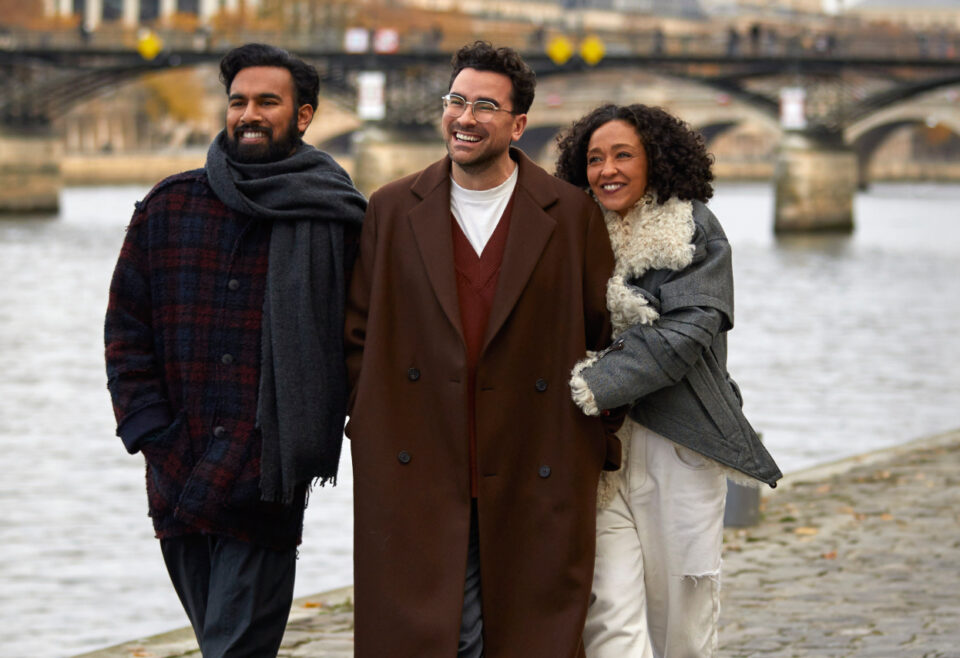
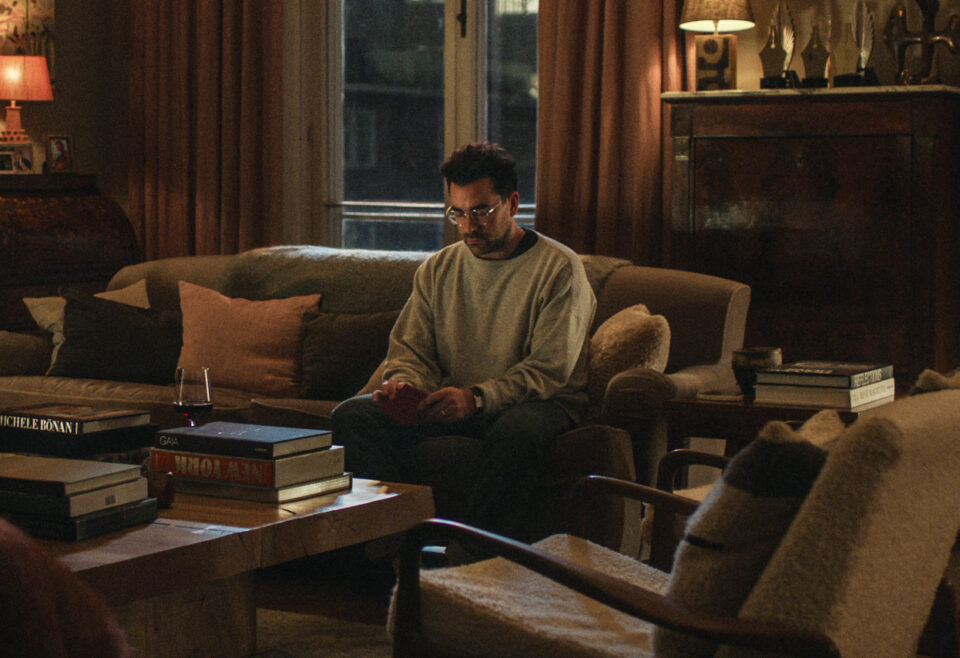
You won more Emmys for the final season of Schitt’s Creek than I’ve had love interests. Did that add pressure to your post-Schitt’s career?
I didn’t feel pressure, but I just know culture. Sometimes when people have an overwhelming amount of success, we as humans love to turn on them. By the end of the night, I believe I said on camera that people are going to hate me for this. And I hate that I said that. I should’ve been more proud in that moment, yet I was so aware of what people were thinking. But, I think that is the state of our culture. We’re an incredibly critical and cruel culture right now. Yet, at the same time, I think successes tend to be so overexposed that I understand why some people might turn. I’ve been very lucky in the sense that I haven’t seen a lot of it, there’s still such a love for the show and it means a lot to people. I didn’t get the huge pushback that I thought I might, but I don’t know why. But no, I never felt pressure because I look at Schitt’s Creek as one of the great crowning achievements of my life. If that’s it, then fuck, that’s great. It’s not a standard to hold the rest of my work up to. It’s a point of pride in knowing that I made something that changed people’s lives and hearts and made them feel happy and warm, particularly during the pandemic, a time when people were feeling really confused and sad and isolated. So no, I don’t think you can look back at what you’ve done and say, ‘Well I have to beat that – or else!’ You look at that and say, ‘If that’s all this amounts to, what a wonderful thing.’ The fact that I’ve continued to be given opportunities is essentially icing at this point. I take the opportunities I get very seriously because I know how rarely they’re afforded to members of our community. It’s not so much the pressure as it is the weight of the opportunity. That’s where the pressure lies for me.
You should get another Emmy for playing Mr. Malloy in Sex Education because you convinced the entire world that you were a heartless wanker.
What a dream. Come in and just disrupt the entire Sex Education ecosystem? Absolutely! Sign me up! That call was amazing, and walking onto that set being such a fan of that show was the most surreal experience. I had such a fun time making it.
As is the case with any beloved piece of art, Schitt’s Creek fans are demanding a sequel, prequel, remake, reboot, revival – all of it. You’ve spoken about the possibility of a future for the show in the past, but where do you stand on that right now?
What do you want?
It’s difficult because…
You didn’t watch the show!
How dare you, Dan. It’s difficult because I think it’s perfect as it is, and a lot of revivals have somewhat tainted the legacy of the original, but in the same breath I’m desperate to see the characters of Schitt’s Creek again.
I’m with you. When you end on that high, I feel like part of the reason why you rewatch the show is because you were never upset by it. If we put something out, it would have to be so good that it improved on what we did. And I’m so proud of what we did that I don’t know if it can be improved upon. I’m also aware, from my own experience, of the minute something overstays its welcome I’m like, ‘Meh, it changes the whole show for me.’ And that desire you have to rewatch it will go away because something about the experience changed. I’d never want that for the audience of our show because they’ve been so supportive and loving. They deserve to be kept in that place of wanting to constantly revisit our characters, and I would never want to disrupt that. But, if I wake up with an idea good enough to continue the story, I absolutely will. It’s a high bar.
Final question for you Dan, and it’s incredibly important. I spoke with Annie Murphy a few months ago and I questioned her on why there was no music video for ‘A Little Bit Alexis’. She blamed you, so what do you have to say?
We didn’t have the fucking money! Everyone thinks our show was drowning in cash. We had no money! I was going on eBay to buy costumes. We didn’t have the cash. We talked about it. We tried to figure out what that would be. It was also a timeline thing because I really wanted it potentially be an easter egg in a later episode of the show. That I would consider figuring out down the line.
We need it, Dan.
That would be a fun thing to release. That’s a conversation with Annie.
Trust me, she’s down.
Okay. First of all, it’s a banger. Her and her friends did that all themselves. It was just a dream.
Good Grief is now streaming on Netflix worldwide.
